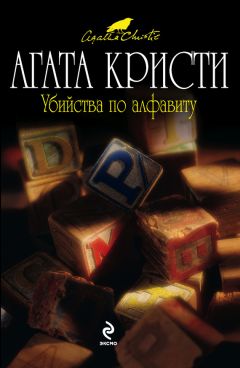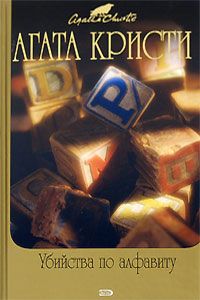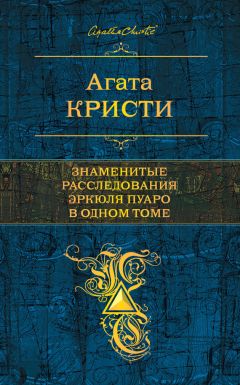Agatha Christie - Английский язык с Агатой Кристи. Убийства по алфавиту
"You are Miss Barnard?" I asked (вы мисс Барнард?).
"I am Megan Barnard (я Меган Барнард). You belong to the police (вы из полиции: «вы принадлежите полиции»), I suppose (я полагаю; to suppose — предполагать)."
"Well," I said, "not exactly (не совсем; exactly — точно) — — "
She interrupted me (она прервала меня). "I don't think (я не думаю) I've got anything to say to you (что мне есть, что вам сказать). My sister was a nice bright girl with no men friends (моя сестра была милой, умной девушкой без друзей-мужчин; bright — яркий; ясный; умный). Good morning (доброго /вам/ утра)."
cheekbones [ˈtʃi:kbǝʋn], angularity [ˌæŋɡju:ˈlærɪtɪ], intensity [ɪnˈtensɪtɪ]
My first impression was of the Dutch dolls that my sisters used to play with in my childhood. Her hair was black and cut in a straight bob and a bang across the forehead. Her cheekbones were high and her whole figure had a queer modern angularity that was not, somehow, unattractive. She was not good-looking — plain rather — but there was an intensity about her, a forcefulness that made her a person quite impossible to overlook.
"You are Miss Barnard?" I asked.
"I am Megan Barnard. You belong to the police, I suppose."
"Well," I said, "not exactly — "
She interrupted me. "I don't think I've got anything to say to you. My sister was a nice bright girl with no men friends. Good morning."
She gave a short laugh (она коротко засмеялась: «она издала короткий смешок»; to give a laugh) as she spoke (когда сказала /это/) and regarded me challengingly (и посмотрела на меня с вызовом). "That's the correct phrase, I believe (это правильная фраза, я полагаю)?" she said.
"I'm not a reporter (я не репортер), if that's what you're getting at (если это то, на что вы намекаете)."
"Well, what are you (а кто вы /по профессии/)?" She looked round (она посмотрела вокруг). "Where's mum and dad (где мама и папа)?"
"Your father is showing the police your sister's bedroom (ваш отец показывает полиции спальню вашей сестры). Your mother's in there (ваша мать там внутри). She's very upset (она очень расстроена)."
The girl seemed to make a decision (девушка, казалось, приняла решение).
"Come in here (заходите сюда)," she said.
She pulled open a door (она толкнула /и/ открыла дверь) and passed through (и прошла через /нее/). I followed her (я последовал за ней) and found myself in a small, neat kitchen (и оказался в маленькой: «обнаружил себя в маленькой», чистой кухне).
mum [mʌm], upset [ʌpˈset], neat [ni:t]
She gave a short laugh as she spoke and regarded me challengingly. "That's the correct phrase, I believe?" she said.
"I'm not a reporter, if that's what you're getting at."
"Well, what are you?" She looked round. "Where's mum and dad?"
"Your father is showing the police your sister's bedroom. Your mother's in there. She's very upset."
The girl seemed to make a decision.
"Come in here," she said.
She pulled open a door and passed through. I followed her and found myself in a small, neat kitchen.
I was about to shut the door behind me (я собирался закрыть дверь за собой) — but found an unexpected resistance (но обнаружил неожиданное сопротивление; to resist — сопротивляться). The next moment Poirot had slipped quietly into the room (в следующую минуту Пуаро тихо проскользнул в комнату) and shut the door behind him (и закрыл дверь за собой; to shut — закрывать; захлопывать).
"Mademoiselle Barnard?" he said with a quick bow (мадемуазель Барнард? — сказал он, быстро поклонившись: «с быстрым поклоном»).
"This is M. Hercule Poirot," I said (это мсье Эркюль Пуаро).
Megan Barnard gave him a quick (Меган Барнард бросила на него быстрый), appraising glance (оценивающий взгляд; to appraise — оценивать, расценивать).
"I've heard of you," she said (я слышала о вас). "You're the fashionable private sleuth, aren't you (вы модная частная ищейка, не так ли; sleuth —ищейка, сыщик, шпион)?"
"Not a pretty description (не /особенно/ приятное описание) — but it suffices," said Poirot (но достаточное: «оно удовлетворительное»; to suffice — быть достаточным, хватать; удовлетворять).
mademoiselle [ˌmædǝm(w)ǝˈzel], sleuth [slu:Ɵ], suffice [sǝˈfaɪs]
I was about to shut the door behind me — but found an unexpected resistance. The next moment Poirot had slipped quietly into the room and shut the door behind him.
"Mademoiselle Barnard?" he said with a quick bow.
"This is M. Hercule Poirot," I said.
Megan Barnard gave him a quick, appraising glance.
"I've heard of you," she said. "You're the fashionable private sleuth, aren't you?"
"Not a pretty description — but it suffices," said Poirot.
The girl sat down on the edge of the kitchen table (девушка присела на край кухонного стола; to sit down). She felt in her bag for a cigarette (она нащупала в сумке сигарету). She placed it between her lips (она расположила ее между губ), lighted it (зажгла ее; to light), and then said in between two puffs of smoke (и затем проговорила между двум клубами дыма): "Somehow (как-то), I don't see (я не понимаю) what M. Hercule Poirot is doing in our humble little crime (что мсье Эркюль Пуаро делает в нашем скромном маленьком преступлении; humble — смиренный; скромный, непритязательный)."
"Mademoiselle," said Poirot (мадемуазель), "what you do not see (/то/, чего не понимаете вы) and what I do not see would probably fill a volume (и чего не понимаю я, вероятно, заполнит том; volume — объем; том, книга). But all that is of no practical importance (но все это не имеет практического значения; important — важный, значимый). What is of practical importance is something (а /вот/ что имеет практическое значение, это /как раз/ нечто) that will not be easy to find (что будет нелегко найти)."
"What's that (что это)?"
humble [hʌmbl], volume [ˈvɔljum], puff [pʌf]
The girl sat down on the edge of the kitchen table. She felt in her bag for a cigarette. She placed it between her lips, lighted it, and then said in between two puffs of smoke: "Somehow, I don't see what M. Hercule Poirot is doing in our humble little crime."
"Mademoiselle," said Poirot, "what you do not see and what I do not see would probably fill a volume. But all that is of no practical importance. What is of practical importance is something that will not be easy to find."
"What's that?"
"Death, mademoiselle (смерть, мадемуазель), unfortunately creates a prejudice (к сожалению, создает предубеждение). A prejudice in favour of the deceased (предубеждение в пользу покойного). I heard what you said just now to my friend Hastings (я слышал, что вы сказали прямо сейчас моему другу Гастингсу). 'A nice bright girl with no men friends (милая, умная девушка без друзей-мужчин).' You said that in mockery of the newspapers (вы сказали это в насмешку газетам; to mock — насмехаться; издеваться), And it is very true (и это настоящая правда) — when a young girl is dead (когда молодая девушка мертва), that is the kind of thing that is said (это то, что обычно говорят: «это тип вещи, который говорят»). She was bright (она была умной). She was happy (она была счастливой). She was sweet-tempered (у нее был славный характер). She had not a care in the world (у нее не было никаких забот: «забот в мире»). She had no undesirable acquaintances (у нее не было нежелательных знакомств; to desire — желать).
There is a great charity always to the dead (это всегда большая милость к умершим; charity — милость; благотворительность). Do you know what I should like this minute (вы знаете, чего бы мне хотелась в данную минуту)? I should like to find someone who knew Elizabeth Barnard (я хотел бы найти кого-нибудь, кто знал Элизабет Барнард) and who does not know she is dead (и кто не знает, что она мертва). Then, perhaps (тогда, возможно), I should hear what is useful to me (я услышу /то/, что полезно для меня) — the truth (правду)."




